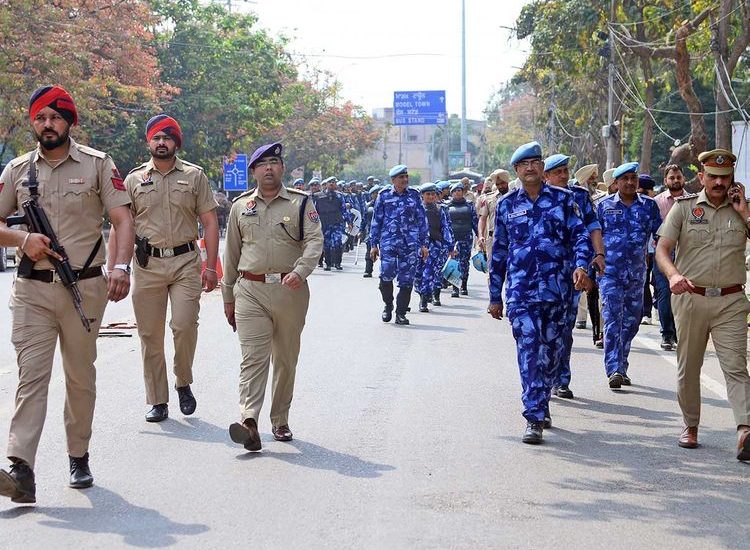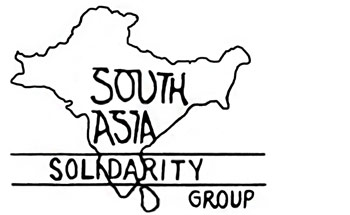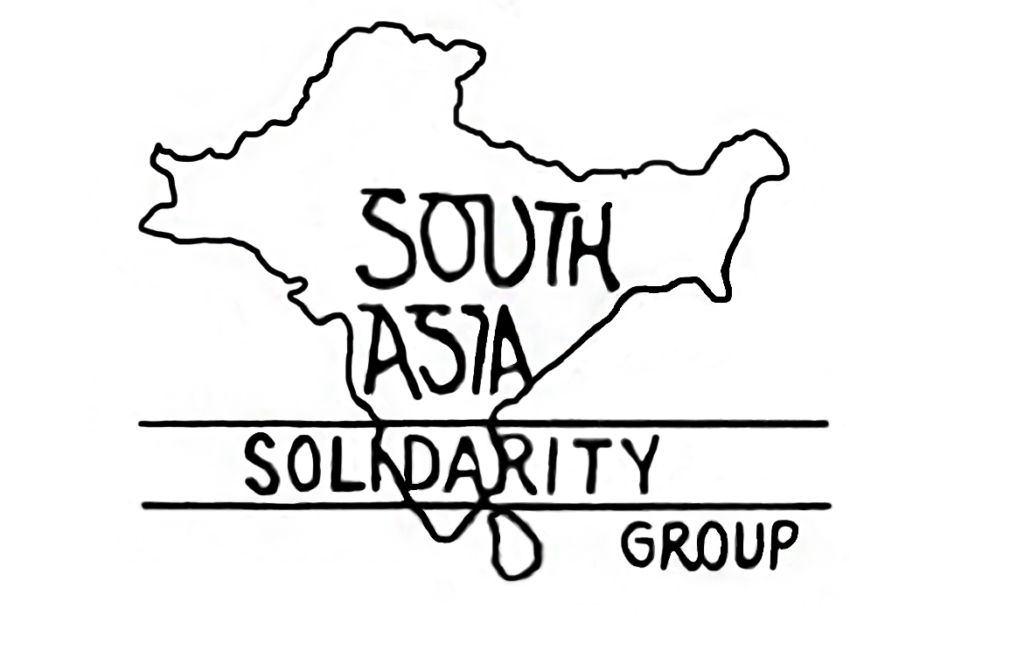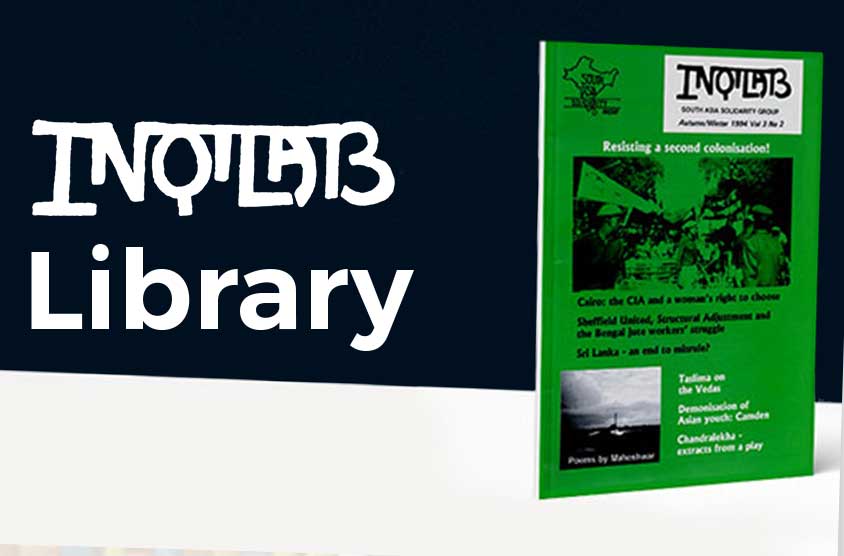Statement on repression in Punjab
- April 3, 2023
- Posted by: kevbha
- Category: News

South Asia Solidarity Group condemns the internet shutdowns, media bans, oppressive policing and mass arrests happening in Punjab, in the name of an ongoing hunt for one man, who recently returned to India from Dubai.
On March 18, a non-bailable warrant was issued for Amritpal Singh (leader of the organisation Waris Punjab De) under the National Security Act, and this was followed by mass arrests. Under this draconian National Security Act, people are denied their basic human rights. Passed in 1980 by the Congress government, it empowers the State to detain a person without giving them any information of the charges against them and without giving them the right to a trial. As lawyer Kawalpreet Kaur tweeted, the invocation of NSA in Punjab ‘sends a depressing and dreadful signal to common people and activists’.
The current situation evokes the horrors of state repression in Punjab in the 1980s. And as was the case then, the State seems to be playing a murky game. The current events in Punjab are happening right after the massive farmers’ movement showed its huge potential to challenge the Modi government and its corporate friends. Waris Punjab De (of which Amritpal Singh is the self-styled leader) is an organisation formed by Deep Sidhu, a Punjabi actor who was a prominent BJP activist, and subsequently became peripherally involved in the farmers’ movement. His main role seemed to be to try to make the farmers’ movement appear to be a pro-Khalistani movement, and to try to discredit the farmers’ movement’s mainly left leadership, however this failed. A year later, Deep Sidhu was killed in a road accident.
Questions remain about why Amritpal Singh was given permission to enter India in August 2022 if, as claimed, he was already under surveillance. And why is the Punjab government, led by the Aam Aadmi Party, alongside the Central government, resorting to such large-scale state repression in search of one man?
We call on people in the diaspora to be extremely wary of the machinations of the Modi government which is clearly trying to create a situation in Punjab of communal polarisation, violence, and a return to the blanket demonisation of Sikhs as ‘terrorists’, from which it can profit in the 2024 national elections.
History must not repeat itself
In 1984 the Indian State carried out Operation Bluestar, attacked the Golden Temple and killed the leading figure of the Khalistan movement, Jarnail Singh Bhindranwale. The ruling Congress Party in the late 1970s had actively supported Bhindranwale, with the aim of weakening the Akali Dal Party, its main rival in Punjab at the time. Bhindranwale rose to prominence at a time of the US-backed ‘Green Revolution’ agricultural policy in Punjab. Although the Green Revolution increased Punjab’s agricultural output, supporting India’s overall economy, the farmers were faced with high costs of irrigation, and of the chemical fertilisers and pesticides which were to create acute environmental damage. The development of capitalist agriculture, which the Green Revolution intensified, led to acute inequality even among the dominant caste Jat farmers, while exploitation of mainly Dalit agricultural workers deepened. At the same time the lack of development in comparison to several other states in terms of industrialisation, employment and education meant there was widespread anger at what was felt to be the unfair treatment of Punjab.
The armed movement for Khalistan, which was deeply casteist, patriarchal and reactionary, received support from some sections of the (mainly Jat) Sikh diaspora in the UK, US and Canada. Bhindranwale eventually set up a parallel government in the Golden Temple with the aim of creating an independent Sikh State. In 1984, Prime Minister Indira Gandhi ordered the Army attack on the Golden Temple (spiritually the most significant shrine in Sikhism) in which Bhindranwale and countless others were killed. As revealed in 2014, then UK Prime Minister Margaret Thatcher sent an SAS officer to advise the Indian military on the operation.
The subsequent assassination of Indira Gandhi triggered a huge anti-Sikh pogrom in Delhi and elsewhere in North India, directly orchestrated by Congress leaders. Years of violence and brutal State repression in Punjab followed. These traumatic events have not been forgotten. To this day people are still suffering and are very angry at not having received any justice. At the same time, people in Punjab are today facing the Green Revolution legacy of an epidemic of cancer, drugs-related deaths, suicides over debt and the ongoing struggle against corporate takeover of agriculture.
The Punjab and Central governments’ response to Amritpal Singh’s call for a Sikh gathering on Vaisakhi, on 14 April, must not produce a repetition of the shocking state repression experienced by the people in Punjab.
We condemn the ongoing close relationship between the Sunak government and the Hindu supremacist regime of Narendra Modi. This is reflected once again in the silence of Sunak over the concerns of UK citizens with family members in Punjab about the Modi government’s repressive actions there, and the collaboration of the UK police in harassing people from Sikh communities in recent weeks. In Birmingham, Sikhs have been profiled for stop and search and arrests while protests were happening at the London Indian High Commission, leading to fears of increasingly draconian police responses to any protests against the Indian government in Britain (something Modi has directly demanded from the British government) and further racist targeting of South Asian communities in Britain.
No to state repression in Punjab!
Foil the Modi government’s attempts to make history repeat itself in Punjab!


